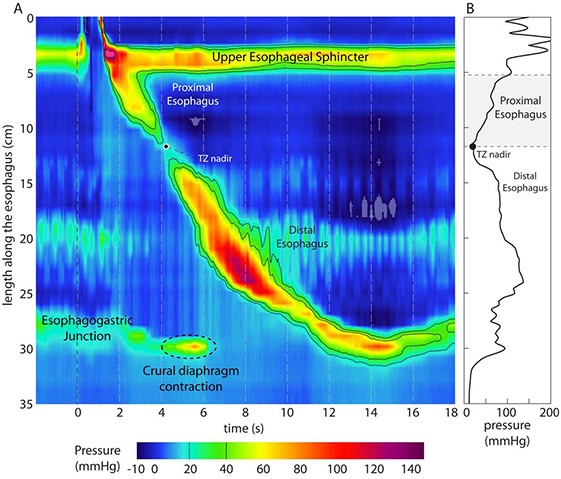
Disease Diagnosis: Chest Pain, Reflux, and Difficulty Swallowing
These symptoms could indicate an underlying issue with your esophagus. At Gandhi Hospital in Aurangabad, Dr. Ashish Gandhi, our gastroenterologist, may recommend an esophageal manometry test to investigate further.
What is the Esophageal Manometry Test?
Esophageal manometry is a simple procedure that assesses the functionality of the esophagus, the muscular tube connecting your throat to your stomach. A valve-like muscle (sphincter) at the esophagus’s end prevents stomach acid from flowing back up (GERD). This test evaluates this valve’s function and the overall health of your esophagus.
Esophageal Manometry Procedure
Here’s a step-by-step breakdown of the test performed by Dr. Ashish Gandhi at Gandhi Hospital:
Numbing the Nasal Passages: Dr. Gandhi will first numb your nostrils with a numbing gel spray for comfort.
Tube Insertion: A thin, pressure-sensitive tube will be carefully inserted through your nose and advanced down your throat and esophagus into your stomach.
Swallowing Liquids: You’ll be asked to swallow small sips of water while the pressure sensor records the valve’s pressure and contraction patterns during swallowing.
Tube Removal: Once the recordings are complete, Dr. Gandhi will gently remove the tube from your nose.
The entire process typically takes around 30 minutes. Abnormalities in the pressure patterns can indicate esophageal dysfunction.
Conditions Diagnosed by Esophageal Manometry
Esophageal manometry is commonly used when a patient experiences persistent swallowing difficulties. Here are some other conditions Dr. Gandhi may use this test to diagnose:
- Chest pain
- Achalasia cardia (improper relaxation of the lower esophageal sphincter)
- Esophageal spasm (involuntary muscle contractions)
- Ineffective esophageal motility (weak muscle contractions)
- Hiatus hernia (part of the stomach pushes up through the diaphragm)
- Scleroderma (an autoimmune disease affecting connective tissues)
Risks and Precautions
Esophageal manometry is a safe procedure with minimal risks. However, it’s common to experience some discomfort during the test, such as gagging while the tube is inserted and mild throat and nose irritation. Watery eyes are also frequent.
